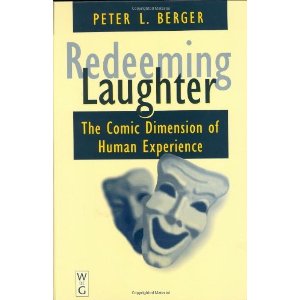“I’d rather be funny than happy.” — Henry Rollins
In his book, “Lincoln’s Melancholy,” author Joshua Wolf Shenk notes how Abraham Lincoln often kept himself going in the face of blistering mental depression through humor. The President enjoyed telling and hearing a good story, especially a funny story, and often a salty one at that.
Mood music:
Indeed, it’s no coincidence that some of the funniest people in history suffered from OCD, depression and other disorders of the mind, including the late Washington Post columnist Art Buchwald. Heck, Buchwald even announced his own passing in a pre-recorded obituary video with these words: “Hi. I’m Art Buchwald, and I just died.”
In my own fight against OCD, depression and a binge eating disorder, I have discovered what these great men understood: Sometimes, when you’re staring Hell in the face, it’s best to laugh and move on.
You’ve read my tales of childhood woe in past posts. Well, to remind myself that I’m not a special case, I keep in my office a tube of “Instant Happy Childhood Memories,” something a friend found in a joke shop five years ago. It reminds me that the wholesome picture of an idyllic childhood is a myth for most people. Just about everyone faces moments of adversity in their youth. It’s part of the natural flow of life. Nothing to see here. Move along.
I’ve found that there’s joy in sarcastic humor, as long as the person on the receiving end knows it’s all in jest and that I wouldn’t be doing it if I didn’t like them.
My father-in-law and sisters-in-law — especially the youngest, whom I long ago branded with the nickname “Blondie” — understand this, and give it back in good measure. Alice Roosevelt Longworth, daughter of Theodore Roosevelt, was a master at sarcasm. In her home off Dupont Circle in Washington DC, she kept a pillow on the couch with the following line sewn across it: “If you don’t have anything nice to say about anybody, come sit by me.”
Instead of taking myself too seriously, I’ve found it’s better to laugh at myself. After all, there’s a lot to laugh about: The oversized ears, feet and nose, the bald head, the bobbing walk, the hands that swirl like windmills when I get excitable about something I’m writing.
Noting that I used to be a skinny metal head with hair halfway down by back, I like to tell people that I’m now bald and all that hair is ON my back. But my wife doesn’t mind, so neither do I.
Other reasons worth laughing at myself: Even though the OCD makes me go batty whenever something on my desk is moved out of place, I still insist on cluttering the desk with historical, political and humorous trinkets. It’s pretty much impossible NOT to knock something out of place, and it’s usually done by my own hand. At home we keep all the living room quilts on a rack in the corner. Naturally they’ll keep getting pulled down by my 6-and-8 year-old boys. Yet there’s often the cyclical process of them pulling them down, me putting them back and them pulling them down again. Knowing their old man has some quirks of personality, I wouldn’t be surprised if they do it on purpose for a laugh. I wouldn’t blame them, either. I’d do the same thing.
I’ve also been known to engage in the time-honored OCD habit of taking my laptop in and out of my briefcase several times before leaving the office. If you don’t find that funny, there’s something wrong with you.
Then there’s the challenge of family dysfunction. I’ve mentioned that, too, in previous posts, but the truth is that we ALL have some family weirdness that keeps us off-balance. There’s always the crazy uncle, the drunk sibling, the hot-tempered and hyper-critical parent. I’ve been all of the above at various points in time, though over time I like to think I’ve become more easygoing with my kids. You’ll have to ask them.
A friend of mine once summed up the best way to handle difficult family dealings with this line: “Put the fun back in dysfunctional.” Good advice.


I agree that humor is a good social lubricant. I’m thinking that mental disorder is more common than is acknowledged but surely there are some coping skills that we learn along the way. Maybe its just the people who don’t learn to cope adequately that diagnosed. Find the bright side. Help the children find the bright side and build those happy memories. I have high hopes for more support along these lines in a more caring health care system. Kindness, tolerance, education and understanding–a better world.